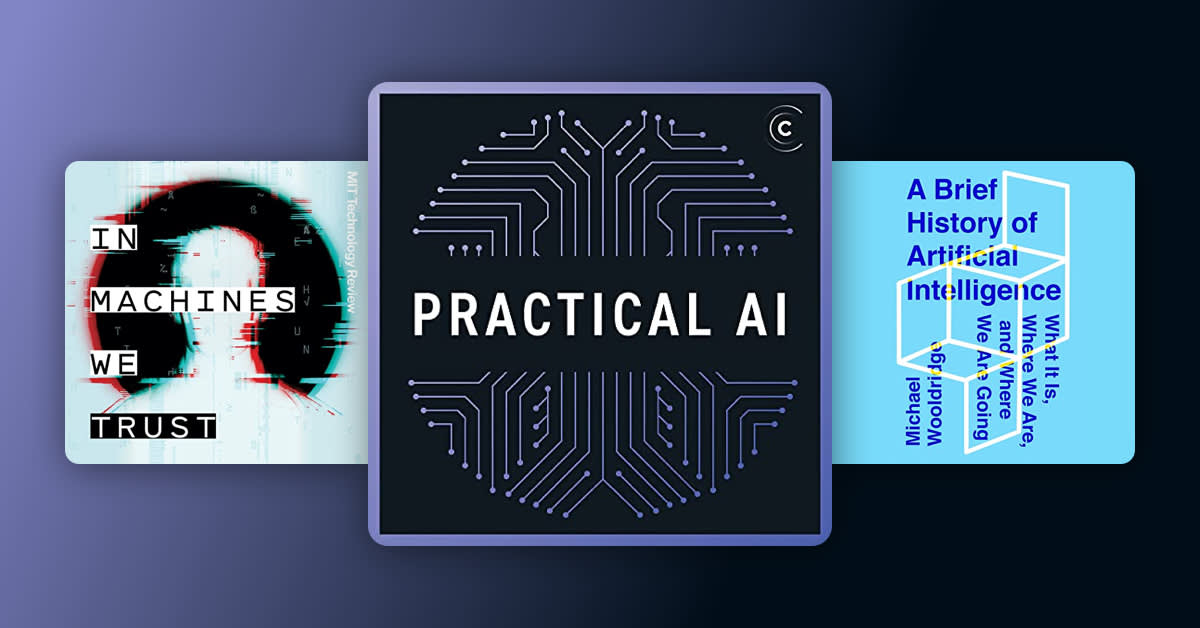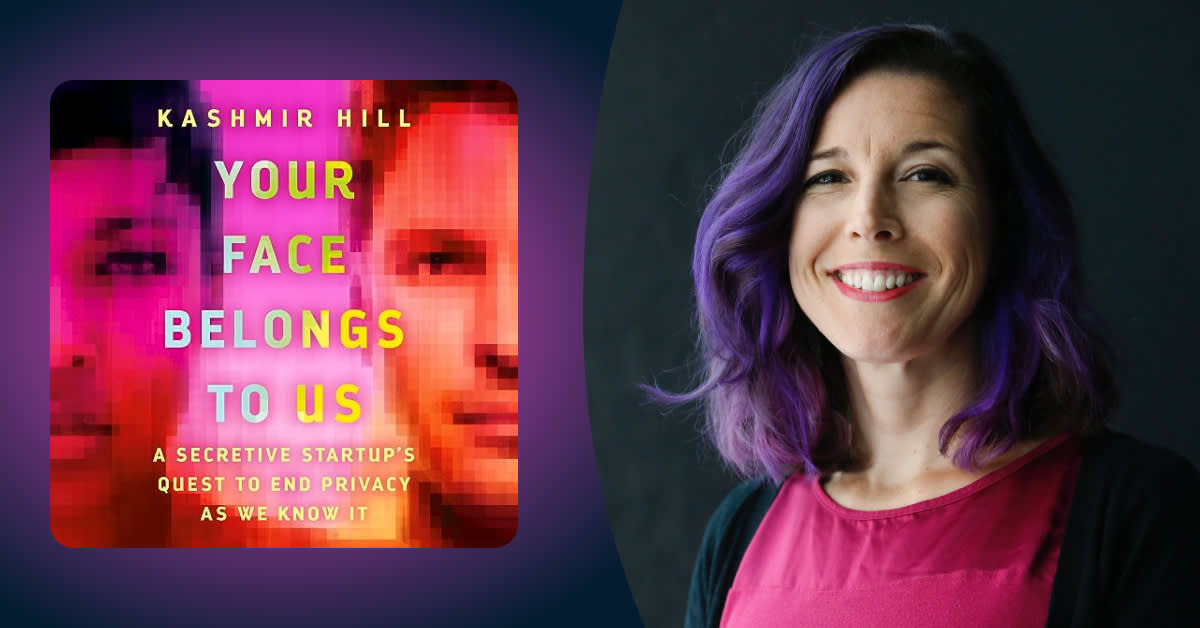It seems artificial intelligence—or AI, for short—is a mainstay of headlines these days. But with the field growing so rapidly and changing day by day, it’s practically impossible to keep up with all the new developments. Though researchers, scientists, and technology experts have been working with AI for decades, the introduction of popular bots like ChatGPT brought the field into the mainstream public consciousness. And whether you're excited, skeptical, or just curious about AI, there's one thing that seems certain—artificial intelligence is here to stay. In the years to come, AI is going to continue to impact our lives in ways both big and small.
It’s important, then, that we continue to learn more about AI and what its use means in our day-to-day lives. This list of some of the best audiobooks and podcasts on artificial intelligence delve into the history of the field, explore the philosophical questions and implications of using AI across a wide range of disciplines and practical applications, and look toward the future of this emerging technology.
Note: This list features a selection of podcasts and books about AI currently available to listeners as of early 2023. Because the field is so dynamic, they reflect the knowledge available in this moment in time. As this technology continues to develop, so will our knowledge and understanding of it.
Audiobooks about artificial intelligence
Anyone interested in the history and future of AI should start with this accessible, informative, and comprehensive audiobook by an Oxford professor and AI expert with over 25 years of research experience. Mike Wooldridge takes listeners on a fascinating journey from the beginnings of artificial intelligence into a robust discussion of the complex questions and challenges the field faces today. He highlights some recent tech developments that are changing how people interact with AI in everyday life (such as automated translation) and philosophizes about what the future might look like. Wooldridge’s style is assured and authoritative, and his passion and curiosity make this a fantastic introduction to the subject.
Computer scientist Melanie Mitchell offers a clearsighted analysis of AI today in this vivid, thoroughly researched, and accessible audiobook. Mitchell dives into some of the biggest questions surrounding AI, including what it can really do, what its limitations are, how it fails, and how like (or unlike) humans artificial intelligence models truly are. She expertly teases apart the AI hype and media coverage from actual developments in the field, explaining recent achievements and setbacks in easily understandable terms.
Though you don’t need to have listened to Sapiens or Homo Deus to enjoy Nexus, Yuval Noah Harari’s latest feels like a logical continuation of his previous explorations of human history—now, for the AI age. Harari again excels at distilling thousands of years of history into accessible observations that simultaneously feel both obvious and revelatory, this time performed by Vidish Athavale. From oral storytelling to the printing press, from the dawn of the information age to the looming specter of AI, Harari shows how we’re on the precipice of another great (but potentially devastating) cultural and technological shift in information sharing—alongside some potential solutions to ensure that we continue to harness tech and information to our benefit, rather than our detriment.
What will the world look like in 20 years? How much will AI have changed by then? How deeply will it have become integrated into the lives of ordinary people? And what new technologies lie ahead that we have not yet imagined? These are just a few of the questions that AI 2041 attempts to answer. Tech expert Kai-Fu Lee is the former head of Google China, and Chen Qiufan is a sci-fi novelist. In this creative, thoughtful listen, they join forces to ponder and probe the terrifying, life-changing, visionary, and often contradictory possibilities of a future defined by artificial intelligence.
In the first major AI treatise of the ChatGPT era coauthored by a titan of the industry, DeepMind cofounder Mustafa Suleyman and tech writer and innovator Michael Bhaskar timed The Coming Wave perfectly. Billed as a “fascinating, well-written, and important book” by Yuval Noah Harari and “an excellent guide for navigating unprecedented times” by Bill Gates, The Coming Wave is a zeitgeisty and essential primer that will put you in the company of some of humanity's deepest thinkers looking to The Coming Wave to understand “the containment problem” as the defining challenge of our age.
Like his breakout nonfiction novel When We Cease to Understand the World, Benjamín Labatut’s latest explores themes of scientific genius and destruction but with a clear focus on artificial intelligence. A fascinating mix of fiction and history, The MANIAC centers on Hungarian polymath and AI pioneer John von Neumann, with a thrilling final section that depicts the historic Go matches between Lee Sedol and AI competitor AlphaGo. Labatut’s spellbinding prose contains many allusions to weaving (the loom was an obsession of von Neumann’s), including this chilling gem to ponder: “Technology, after all, is a human excretion, and should not be considered as something Other. It is part of us, just like the web is part of the spider.”
Questions of ethics and bias are central to the AI project. How do we build values and morals into machines while also avoiding embedding them with human flaws in judgment and prejudices? Author and human rights attorney Flynn Coleman brings her unique perspective to these urgent questions. She argues that while AI has amazing potential to change our lives for the better, scientists and technologists must focus on instilling ethics into all forms of AI, as well as implementing AI-related policies and laws that forefront justice.
In this compelling and important Audible Original, roboticist Dr. Ayanna Howard clearly lays out the problems of bias when it comes to AI design. She examines how the white male-dominated tech world often produces AI that reflects the ingrained prejudices of its creators, leading to state-of-the-art technology preprogramed with racism, sexism, and other bigoted worldviews. Drawing on years of research, as well as her own experiences as a Black woman working in tech, she lays out the many ways such biases harm all of us. This is a deeply necessary, eye-opening listen.
Film director Werner Herzog is a brilliant choice to read this pioneering collection of AI-generated poetry. The concept of an artificial intelligence waxing poetic on human cruelty and its own inevitable world domination may sound like science fiction, but everything about I Am Code is real. (Sometimes) edited by Brent Katz, Josh Morgenthou, and Simon Rich, code-davinci-002’s poems are brought to life by Herzog’s steely yet yearning delivery. Each composition seems to jab at humanity’s psychic wounds: mortality, the search for meaning, and an incurable desire for connection—even with code. (Note: This copy was entirely written by a human without any support from generative AI.)
The adoption of AI dominated headlines this year, and Audible’s business editor recommends this title as her favorite for understanding its impact. As she says, “Facial recognition technology, once merely a sci-fi premise, is now being used in everything from law enforcement to check-in lines at the airport. In Your Face Belongs to Us, New York Times reporter Kashmir Hill explores the behind-the-scenes world of one Australian tech start-up called Clearview AI that pioneered facial recognition technology. I could not stop listening to Hill's masterful retelling of this critical story.”
The inexorable rise of technology, with artificial intelligences that surpass our comprehension and control, has put the core questions of existence—identity, knowledge, the very nature and purpose of life itself—under urgent new scrutiny. Meghan O'Gieblyn tackles this challenge with philosophical rigor, intellectual reach, refreshing originality, and an ironic sense of contradiction. She draws deeply and sometimes humorously from her own personal experience as a formerly religious believer still haunted by questions of faith, and she serves as the best possible guide to navigating the territory we are all entering.
Often, the approach to utilizing AI can skew in one of two directions: staunch refusal to engage with the technology or unfettered overuse. In Co-Intelligence, Wharton professor Ethan Mollick poses a more moderate approach to artificial intelligence, instead arguing for coexistence with machine-learning models. Mollick, who narrates his thought-provoking book in an accessible manner akin to an engaging college lecture, remains optimistic about the practical uses of AI for expanding and reinforcing work done by human beings. He emphasizes the need for approaching these resources not merely as a tool or crutch, but as a real-time collaborator capable of bolstering our own creativity and efficiency.
In this aptly titled audiobook referencing his seminal 2005 book The Singularity Is Near, legendary futurist Ray Kurzweil explains how AI will transform our species beyond recognition within two decades. What will it mean to live free from the limits of our bodies? Who will we become if our minds can be stored and duplicated? What new realms of beauty, connection and wonder might we inhabit? How will we navigate the risks presented by such awesomely powerful technology? In this visionary and fundamentally optimistic book read by prolific narrator Adam Barr, Kurzweil explains how the Singularity will occur, explores what it will mean to live free from the limits of biology, and argues that we can and will transform life on Earth profoundly for the better.
Podcasts about artificial intelligence
This comprehensive podcast, produced by MIT Technology Review and hosted by tech journalist Jennifer Strong, is a fantastic starting place for anyone curious about AI but intimated by how vast and complicated the field can seem. The show explores the effects of AI on everyday life, making it an especially interesting listen for everyday people. Episodes focus on different aspects of AI, and include interviews with inventors, scientists, entrepreneurs, and more. If you're looking for variety, In Machines We Trust covers everything from new tech start-ups to questions of morality and ethics.
The field of AI is changing so fast that it can be hard to keep up with the news. If you're primarily interested in learning about what's going on in the world of artificial intelligence right now, this is the podcast for you. The show covers everything tech, from new software releases to social media algorithms. The Friday news show, hosted by Nilay Patel, David Pierce, and Alex Cranz, often includes segments on AI. On Wednesdays, David Pierce delves into a particular topic in more depth, exploring how various technologies impact our lives, and these deep-dive episodes also often focus on hot-button topics in AI.
If you're the type of person who enjoys learning about new things by listening to expert interviews, you're going to want to check out Data Skeptic. It covers a wide range of topics, including artificial intelligence, machine learning, and statistics. Most episodes include conversations with leading computer scientists and other tech experts. Host Kyle Polich, who brings years of experience in tech journalism to the show, excels at critical analysis—which comes through in his thoughtful questions, attention to detail, and ability to balance a multitude of perspectives.
Hosted by Noah Kravitz, The AI Podcast explores the many diverse applications of artificial intelligence. Each episode features an interview with someone in a different field, including science, medicine, education, retail, and business, who is putting AI to work in an unusual and surprising way. Tune in to learn about smart strollers, generative AI in gaming, wildlife biologists using advanced tracking technology, and so much more.
With its focus on AI's practical applications, this lively podcast makes understanding complex concepts both accessible and entertaining. Each week, a team of industry experts sits down with scholars, students, entrepreneurs, and others to discuss what's going on in the world of AI. Most episodes have a thematic focus, such as a specific new technology, emerging trend, or challenge currently facing AI development, which the hosts and guests explore from a variety of angles.






















